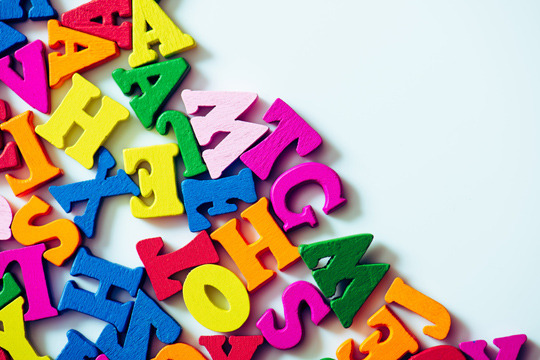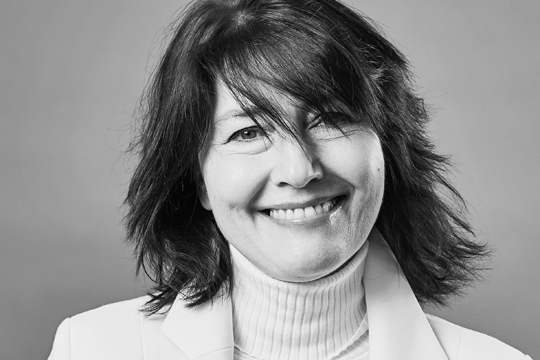A Concert of Many Voices
Freiburg, Jan 02, 2019
The Nobel Peace Prize for 2018 went to Nadia Murad, a Yazidi woman who came to Germany from Northern Iraq as part of a German special-quota project designed to support women and children who are especially in need of protection. This program enabled the government of Baden-Württemberg to help 1,100 women and children to escape the war and brutal sexual violence in Northern Iraq. Katharina Brizić, Professor of Multilingualism Research at the University of Freiburg, is focusing on this program in her research. She talked to Jürgen Reuß about how and why she became interested in this subject.

Foto: beeboys/Fotolia
Professor Brizić, you received a grant from the Stiftung Mercator in 2018 to research integration. What made you decide to focus on Yazidi women and the state of Baden-Württemberg’s special program?
Katharina Brizić: My main interest lies in the social cohesion of society and the violence that can ensue when this cohesion begins to crumble. Especially minorities like the Yazidi are the most vulnerable in such processes. The Yazidi have been persecuted for a long time because of their religion. They are also a Kurdish-speaking minority without government protection. The persecution of the Yazidi by the Islamic State has certainly been one of the greatest threats to a minority in the Middle East so far. And yet, in the midst of all this destruction, other processes have also begun, like this special program, which is an excellent initiative. It was designed to bring women and children who are in danger from Northern Iraq to Germany, where they are given a secure environment and a new home. The Yazidi women who have survived threats, kidnappings, and persecution and are raising their voices for justice have shown incredible strength. Nadia Murad is the most famous example, but she isn’t fighting for revenge; she’s fighting to ensure that the perpetrators are sent to a proper court of law. Her struggle for justice is extremely important as a foundation for building solidarity and cohesion in Iraqi society, parts of which have suffered trauma.
You are a linguist and Professor of Multilingualism Research. What is the connection between multilingualism and your interest in social cohesion?
From a social point of view, our society is highly diverse. We currently feel the effects of many social rifts running through society. In research, we simply call this “polyphony.” Germany has many different socially, religiously, professionally or historically defined groups of people, each with their own “voice” with which they contribute to a greater “concert of voices,” or diversity of discourses, as we linguists would call it.
What role does multilingualism play in this?
It is one of the many aspects of this concert of voices. This means that different social, religious, professional, and historical experiences are reflected in the diversity of language, either in the form of the specific jargon we use in certain professions and fields of study, in dialects and sociolects, and in the many narratives of collective experience. My project is to monitor this multilingual cacophony closely. How do rifts and divisions occur, and how can we bring what has been separated back together again before it’s too late? How do we prevent different parts of society from drifting apart? What needs to be done – especially in terms of language and discourse – to make community and social cohesion, which is so essential, possible?

“Different social, religious, and historical experiences are also reflected in the diversity of language,” says Katharina Brizić. Photo: Peter Gwiazda
Parents are often worried when their children are put in a classroom with other children who speak different languages. What are they afraid of?
Many people are afraid that German-speaking children will pick up the way non-native speakers talk and learn mistakes. But in reality, language acquisition works the other way around. The non-native speaking children acquire a stronger awareness of language norms and orient themselves toward the native speakers. The parents of non-German-speaking children have the same worries, incidentally. Virtually everyone is under immense pressure in society these days for their children to be successful in school, so they can do well later on the job market. It’s the same for teachers. That’s why this extreme pressure doesn’t help to bring society closer together. Instead, it feeds fears, reservations, and prejudices. This brings us back to the Yazidi people of Northern Iraq. The thousands of years of prejudice against this minority helped to fuel the catastrophic persecution of the Yazidis in 2014.
What happens within a community that has been persecuted like this?
The case of the Yazidi people is an impressive example. It’s amazing how quickly old rules that discriminated against women were abolished. Their religious leader revoked all convictions of rape victims and explicitly declared that all women who have been raped cannot be excluded from the community – that solidarity and social cohesion must especially apply to them. This is the atmosphere in which Nadia Murad became a Nobel Peace Prize recipient. Just to make the extent of this decision clear, I’m still waiting for the Catholic Church to acknowledge people who are divorced as full members.
The special program for Yazidi women introduced new ways of opening borders in Germany. How do you see this in light of what you’ve learned so far?
What’s been especially important is the psycho-social therapy approach designed by Prof. Dr. Jürgen Bengel and Dr. Jennifer Hillebrecht in Freiburg. It would have been a disaster to put the Yazidi women directly in a normal integration class after arriving in Germany. Therapists and teachers also first have to learn how to work with people suffering from severe trauma. In this regard, the special program has opened the door for a new direction in working with refugees and immigrants. In general, far too much weight is being put on the shoulders of social workers and schools without giving them the proper preparation or pay.
How can this be changed?
We need to value those working in the fields of social work & social welfare and education more. I don’t mean just improving training and wages; the value our society places on these jobs must also be improved.
Do you think something also has to be done at universities and in research?
Of course. I’m against social sciences projects often receiving too little funding. We desperately need the humanities and social societies. It’s high time a Nobel Prize for the Social Sciences was established. Nadia Murad has given us inspiration to honor social accomplishments not just with the Nobel Peace Prize. It’s about the glue that holds society together. We have to develop new ideas and try new approaches.

